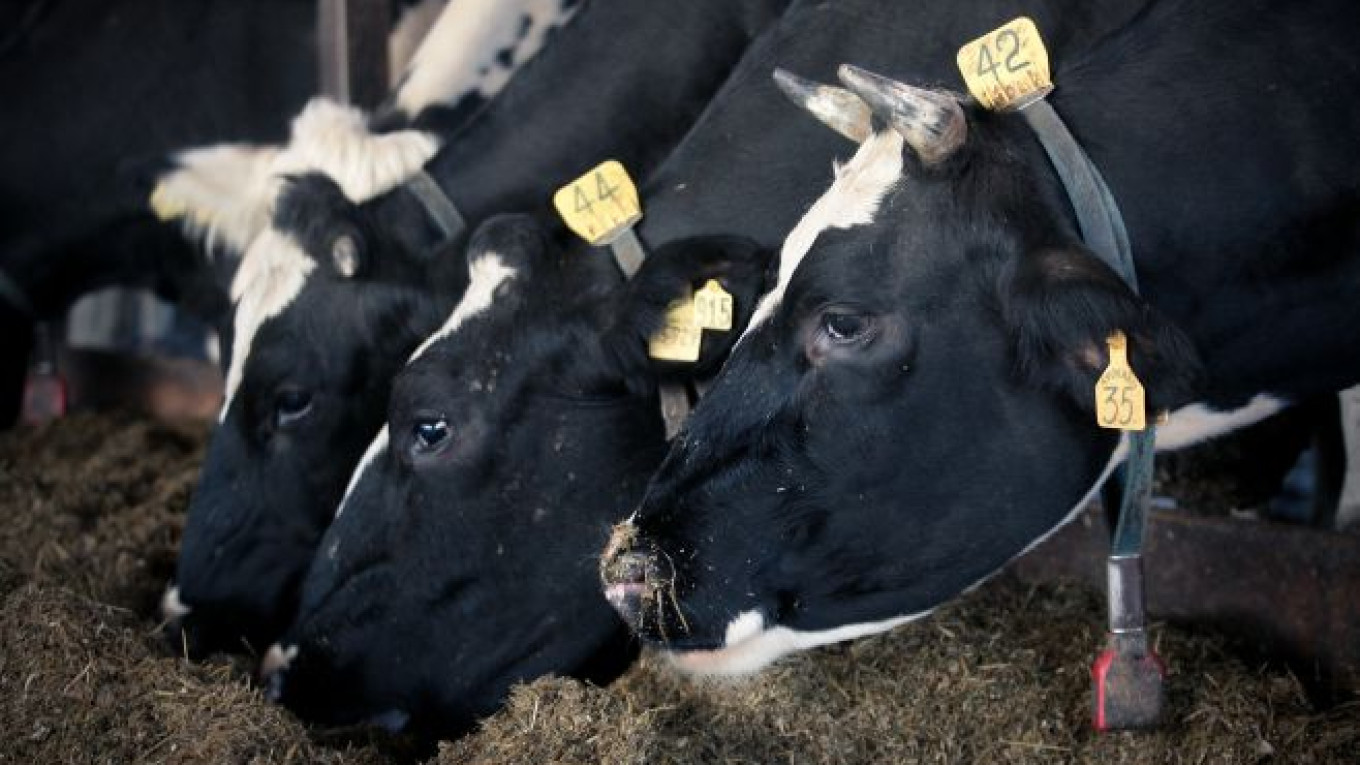BUENOS AIRES — Major world food supplier Argentina will send a trade delegation to Russia this week to try to increase exports to the country, which this month banned many Western products in response to sanctions over its intervention in Ukraine.
Argentina's enthusiasm for trade with Russia will improve Moscow's chances of filling any gaps left by its ban on European Union supplies and reduce the odds of food shortages.
Argentina's neighbor Brazil has already jumped in with both feet. About 90 new meat plants there were hastily approved to export to Russia, and Brazil began work to increase its corn and soybeans sales to Russian buyers.
Argentine state news service Telam said meetings would take place on Tuesday and Wednesday in Moscow "with the explicit objective of quickly signing export contracts."
Dairy product exports alone could rise 20 percent if Russia turns to Latin America's No. 3 economy after blocking U.S. and EU milk, Miguel Paulon, head of Argentina's dairy industry chamber, told Telam.
Moscow has blocked food imports from the United States, the EU, Australia, Canada and Norway in retaliation for sanctions over the Ukraine crisis.
The Argentine mission will include trade and agriculture ministers. "This is a concrete opportunity that we have to take advantage of," Daniel Funes de Rioja, head of Argentina's Copal food industry chamber, told Telam.
Increasing export revenues could help Argentina stabilize its central bank reserves, which have fallen more than 5 percent over the last year to $28.9 billion.
The trade mission comes at a time of tension between Washington and Buenos Aires. Argentina blames? U.S. federal courts for pushing it into a sovereign bond default last month, part of a long battle with a group of New York hedge funds.
On Thursday, President Cristina Fernandez said she would use an anti-terrorism law for the first time against Chicago-based RR Donnelley, which her government accused of closing its Argentine printing plant without adequate warning. A company spokeswoman was not available for comment on Friday.
Fernandez said the company had ties to U.S.-based hedge funds that are suing Argentina over its defaulted debt.
The subjects of the trade talks in Moscow will include beef and "some soymeal," said a Buenos Aires trading company executive who requested anonymity. Argentina is the world's No. 1 exporter of soymeal livestock feed.
The country, which has one of the world's highest inflation rates, limits exports of meat, corn, wheat and other foods to try to keep domestic food prices down.
"To Russia we could export beef, grains and fruit, but our government makes international shipments difficult by not always granting export permits," said Ernesto Ambrosetti, chief analyst at the Argentine Rural Society, which represents some of the country's biggest farms.
"So it's hard to really know what we could export to Russia to take advantage of a short-term opportunity," he said.
See also:
A Message from The Moscow Times:
Dear readers,
We are facing unprecedented challenges. Russia's Prosecutor General's Office has designated The Moscow Times as an "undesirable" organization, criminalizing our work and putting our staff at risk of prosecution. This follows our earlier unjust labeling as a "foreign agent."
These actions are direct attempts to silence independent journalism in Russia. The authorities claim our work "discredits the decisions of the Russian leadership." We see things differently: we strive to provide accurate, unbiased reporting on Russia.
We, the journalists of The Moscow Times, refuse to be silenced. But to continue our work, we need your help.
Your support, no matter how small, makes a world of difference. If you can, please support us monthly starting from just $2. It's quick to set up, and every contribution makes a significant impact.
By supporting The Moscow Times, you're defending open, independent journalism in the face of repression. Thank you for standing with us.
Remind me later.


